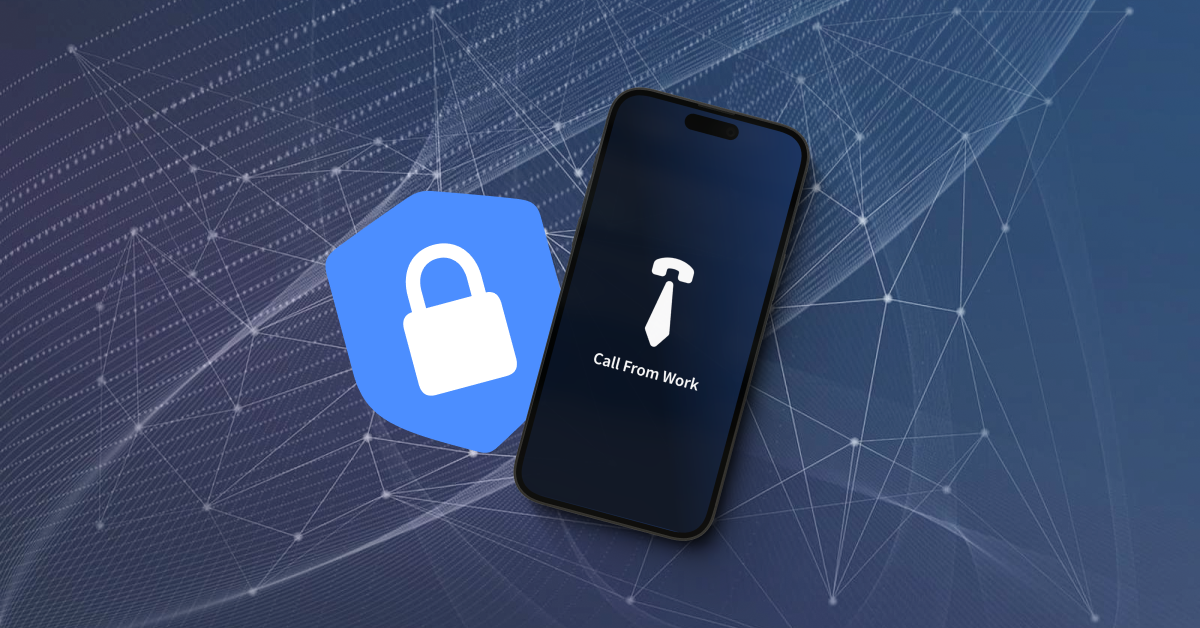Navigating Workplace Stalking: Safeguarding Your Well-Being with Call From Work
In the professional world, establishing connections with clients is a common practice. However, what happens when a professional relationship turns dark and a work client stalks you? In this blog post, we'll shed light on the unsettling reality of workplace stalking, offering insights into recognizing the signs, taking action, and prioritizing your safety, all while emphasizing the role that Call From Work can play in ensuring secure professional communication.
Recognizing the Signs
Workplace stalking can manifest in various forms, from persistent unwanted communication to physical presence in your personal space. Identifying these signs is crucial in addressing the issue. If a client is excessively contacting you, showing up unexpectedly at your workplace or personal events, or engaging in unwarranted surveillance, taking these actions seriously is imperative.
Documenting Incidents
Keep a detailed record of all incidents related to the stalking. Document dates, times, locations, and descriptions of each occurrence. Save any relevant communication, such as emails, messages, or voicemails, as evidence. This comprehensive record will be invaluable when seeking assistance from authorities or legal professionals.
Setting Boundaries
Communicate your boundaries to the client. If comfortable, express that their behavior is unwelcome and making you feel unsafe. Document these communications as well. Establishing and reinforcing boundaries is essential to protecting yourself and communicating that their actions are unacceptable. Tools like Call From Work are key to setting and maintaining these boundaries by providing only professional avenues of contacting you, rather than requiring you to give your personal cell phone number to clients.
Seeking Support Within the Workplace
Inform your supervisor or HR department about the situation. They can guide you through company policies, implement security measures, and explore potential legal avenues for protection. The workplace has a responsibility to ensure the safety and well-being of its employees, making seeking support from within your organization a crucial step.
Involving Law Enforcement
If the stalking persists or escalates, involving law enforcement becomes necessary. Share your documented evidence with the police, file a formal report, and obtain a restraining order if needed. Law enforcement can offer additional protection and resources to address this challenging situation.
Utilizing Support Networks
Lean on your support networks, personally and professionally. Inform friends, family, and colleagues about the situation, ensuring you have a circle of individuals who understand and are willing to provide assistance and emotional support. Don't hesitate to seek counseling or therapy to help process the emotional toll that stalking can take.
Emphasizing Self-Care
Dealing with the stress and anxiety associated with being stalked is emotionally taxing. Prioritize self-care by engaging in activities that bring you comfort and relaxation. Seek professional counseling, practice mindfulness, or spend time with loved ones who offer emotional support.
Being stalked by a work client is a distressing situation, but by recognizing the signs, documenting incidents, setting boundaries, seeking support within the workplace, involving law enforcement, utilizing support networks, and emphasizing self-care, you can navigate this unsettling reality. Remember, your safety and well-being are paramount, and taking proactive measures, including using secure communication tools like Call From Work, is essential to reclaiming control and moving forward.
More Posts You'll Like:













